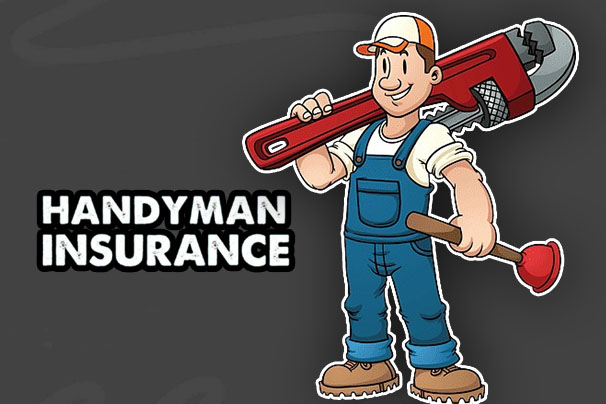
Just how important is the Handyman Insurance and why does it matter? Handymen play a vital role in keeping homes and businesses in good condition, tackling everything from repairs to maintenance and installations. However, working as a handyman comes with its share of risks, including accidents, property damage, and potential legal liabilities.

Handyman insurance becomes crucial because it is a specialized form of coverage designed to protect handymen and their businesses from financial losses arising from work-related incidents.
What Is Handyman Insurance?
Handyman insurance is a collection of policies tailored to address the unique risks faced by handymen and contractors. Furthermore, these policies include general liability insurance, tools and equipment coverage, workers’ compensation, and more.
Additionally, the goal is to protect you from financial burdens caused by accidents, injuries, or lawsuits that may arise during your work. For instance, the right insurance policy can cover the associated costs if you accidentally damage a client’s property or a customer gets injured on-site.
Why Do Handymen Need Insurance?
Working as a handyman comes with various high risks, which include:
- Accidental Damage: Breaking or damaging a client’s property while working.
- Injuries: You or someone else getting injured on the job site.
- Equipment Loss: Equipment tools being lost, stolen, or damaged.
- Legal Issues: Clients suing for incomplete or unsatisfactory work.
Without proper insurance, you could be held personally liable for these costs, potentially jeopardizing your business and personal finances. Handyman insurance not only provides financial protection but also builds trust with clients, as it demonstrates professionalism and preparedness.
Types of Handyman Insurance
There are several types of handyman insurance policies available, each designed to cover specific risks. They include:
General Liability Insurance
This is the most basic and essential coverage for handymen. It protects against:
- Property Damage: If you accidentally damage a client’s property, the insurance covers repair or replacement costs.
- Bodily Injury: If a third party (e.g., a client or bystander) gets injured due to your work, this policy covers medical expenses and legal fees.
Tools and Equipment Insurance
Your tools are very essential to your work. So, this policy covers:
- Loss or Theft: If your tools are stolen from your vehicle or job site.
- Damage: Coverage for tools damaged by fire, water, or accidents.
Commercial Auto Insurance
If you use a vehicle for work purposes, personal auto insurance may not provide adequate coverage. Commercial auto insurance covers:
- Vehicle Damage: Repairs for your work vehicle.
- Liability: If your vehicle causes damage or injury while on the job.
Workers’ Compensation Insurance
If you have employees, workers’ compensation insurance is often legally required. It covers:
- Medical Expenses: For employees injured on the job.
- Lost Wages: If an employee is unable to work due to injury.
Professional Liability Insurance
Also known as errors and omissions insurance, this policy protects against:
- Claims of Negligence: If a client alleges that your work caused harm or was not completed as promised.
- Legal Defense Costs: Coverage for defending against lawsuits.
How to Purchase an Insurance Policy
If you are interested and ready to buy a policy, here are important things that you must know first:
Assess Your Needs
You can start by considering the type of work you do and the risks involved. Also, determine whether you need coverage for employees, vehicles, or specialized tools.
Research Providers
Look for insurance companies that specialize in handyman or contractor coverage. Furthermore, you must compare policy options, premiums, and customer reviews.
Get Multiple Quotes
Request quotes from different providers to ensure you get the best coverage at a competitive price.
Understand the Terms
Read the policy details carefully to understand what is covered and any exclusions. Furthermore, you must ask questions if anything is unclear.
The Cost of Handyman Insurance
The cost of handyman insurance varies depending on factors such as:
- Location: Insurance rates can vary based on local laws and risks.
- The Type of Coverage: More comprehensive coverage typically costs more.
- Business Size: Larger businesses with employees may have higher premiums.
- Claims History: A clean claims history can result in lower premiums.
On average, general liability insurance for handymen ranges from $400 to $1,200 annually. Adding additional policies, such as tools and workers’ compensation, increases the total cost.
Benefits of Handyman Insurance
Here are some benefits that you enjoy when you get the Handyman insurance:
- Insurance prevents out-of-pocket expenses for accidents, damages, or legal claims.
- Certain policies, like workers’ compensation, may be legally required in your area.
- Clients are more likely to hire insured handymen, as it shows professionalism and accountability.
- Knowing you’re covered allows you to focus on your work without constant worry about potential risks.
Frequently Asked Questions
Here are some frequently asked questions you can check out:
Is Handyman Insurance Legally Required?
While it is not always required, some states or clients may mandate specific coverage, such as workers’ compensation or liability insurance.
Can I Get Insurance as a Part-Time Handyman?
Yes, many insurance providers offer policies tailored for part-time or freelance handymen.
Does Handyman Insurance Cover Subcontractors?
Generally, subcontractors need their own insurance, but you can discuss adding coverage with your provider.